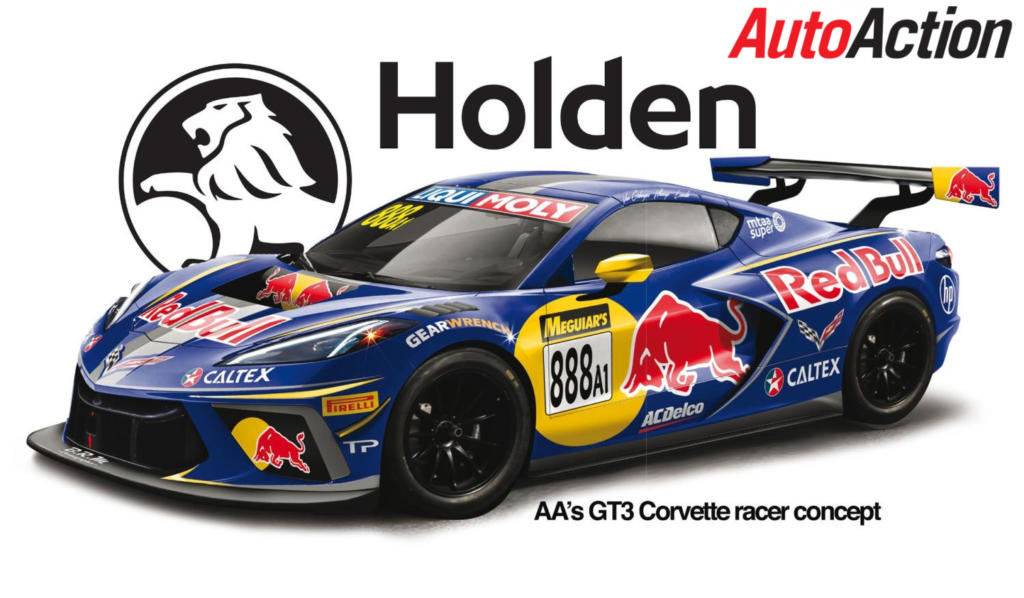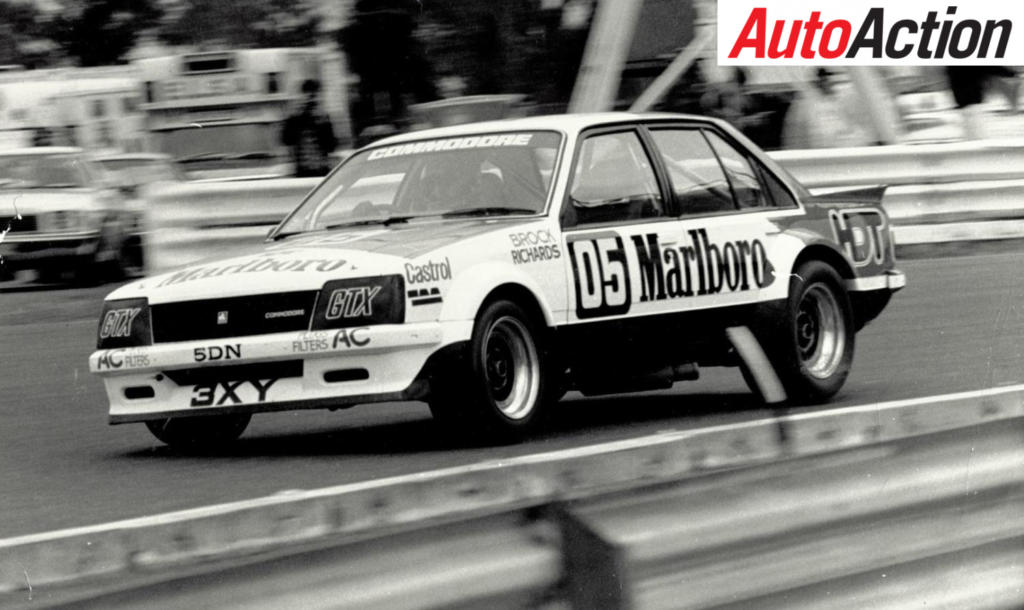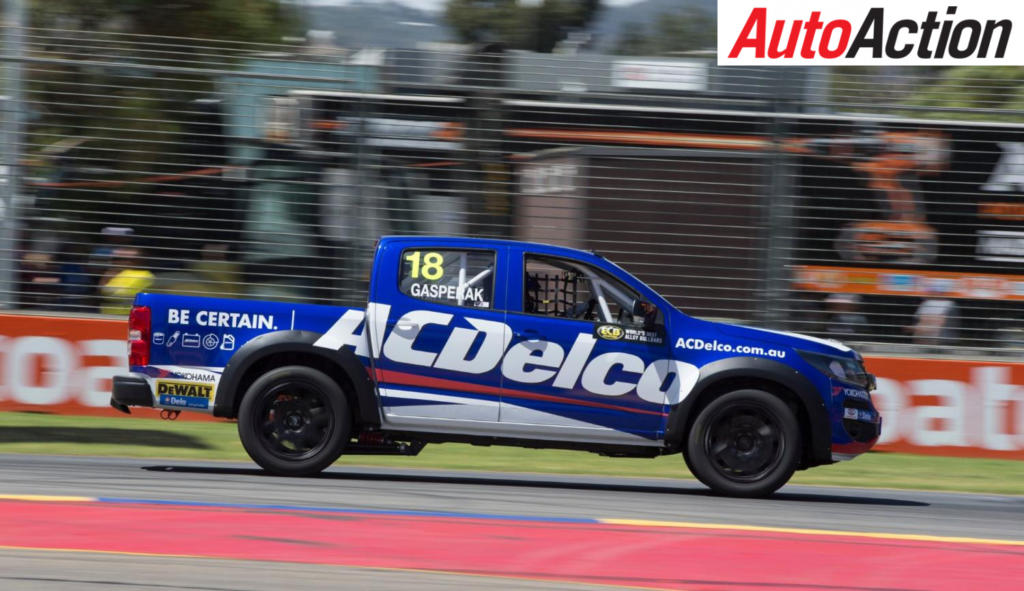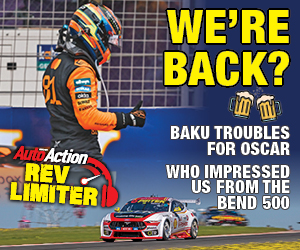HOLDEN RACING DILEMMA


Holden Racing Dilemma
Holden is committed to Supercars until the end of the 2021 season. Hopefully, that assurance means more than last week’s declaration that the future of the Commodore was safe.
COMMENT By MARK FOGARTY
Amid speculation that the fully imported ZB Commodore would be dropped, Holden dismissed the possibility.
Turns out the conjecture was remarkably well informed, with the Commodore’s demise confirmed just five days later.
In hindsight, Holden’s earlier defence of the storied nameplate was a classic case of semantics. Carefully worded to suggest something while open to later re-interpretation.
Not a lie, but clearly not the whole truth, either. Disingenuous would be the politest description, given that it’s now obvious the company had already decided the Commodore’s fate.
In that context, it would not be unreasonable to be sceptical of Holden’s pledge to continue supporting the Commodore in Supercars for another two years.
“Holden recently re-committed to racing in Supercars through until the end of 2021, and that will happen with the currently homologated ZB Commodore race car,” read the official statement. “Racing is a strong part of Holden’s brand identity and we will assess our options as Supercars continues to evolve its rules for the next generation of cars currently due to be introduced in 2022.”
Seems unequivocal – and probably is.
Unless there’s some secret get-out clause, Holden is locked into backing Triple Eight Race Engineering as the Red Bull Holden Racing Team for two more seasons.
Knowing Roland Dane, it would most likely cost Holden more to get out of that two-year deal than to honour it. So assume it’s set in stone.
And even without Commodores on the showroom floor in 2021, racing would remain a useful branding exercise for the Lion’s all-SUV/ute line-up.
The demise of the Commodore was inevitable. Along with the shift from large family cars to SUVs, it was the wrong nameplate for the right car.
Calling the imported ZB a Commodore doomed it to failure. Not Australian, not rear-drive, no V8.
It would have been more successful – but still not a big sales success – if had been the Holden Insignia, acknowledging the German Opel connection, or given a new nameplate like Commander.
The irony, if not tragedy, is that the ZB is a fine car. Better, in many ways, than the final locally made VF, even without a V8 option.
I rented a mid-range RS during the season and it was a revelation. Well-built, well-equipped and a smooth-but-sporty drive.
The two-litre turbo four is so much silkier and gruntier than the VE/VF’s droning 3.6-litre V6. Like, seriously punchy down low and aurally inoffensive.
Just to add to the appeal, ZBs are bargains. Recently parked up my HSV Senator near a bloke’s RS and he raved about it – then added the kicker that he got his from a desperate dealer for $28,000 drive-away!
Absolute bargain, even if it were a demo. Sure, it’ll be worthless in five years, but for 28K? Won’t get a better car within 10 grand of that.
Even better is the VXR. Four-wheel drive, all the fruit and a growly yet refined version of that same GM 3.6-litre V6. Precise, sure-footed, quite sonorous, comfortable and loaded.
After driving it, I agreed with Jamie Whincup that it was way better than his previous VF SS-V ‘company car’. He would say so, but he’s right. I love my HSV, but I have to admit the VXR is next-level as a daily driver that cosets as well as thrills.
But as good as they are, ZBs aren’t Commodores. That disconnect condemned a decent car.
It also doesn’t relate to the Supercars racer. But, to be fair, fans just love that there is a Commodore doing battle with the Mustang – as they drive home in their Toyotas, Hyundais, Kias and even low-end Audis, BMWs and Mercedes-Benzes.
With the Commodore killed, the big question is whether Holden will stay in Supercars under the new two-door coupe-centric Gen3 rules from 2022.
Indeed, whether Holden will still be around then – or if General Motors even stays in the Australian market – are the much bigger and more germane questions.
Many, if not most, motor industry observers doubt Holden can survive as sales plunge – and continue diving – to their lowest levels ever. They also point to an uncompetitive range of SUVs and utes.
Holden has decided to focus on the main and growing sectors of the market without the vehicles – Acadia apart – to fight that sales battle.
The greatest concern, though, is that the Holden brand and all it stood for has been trashed by serial mismanagement and misunderstanding.

You could write a doctoral thesis on this. Suffice to say, no longer being a local manufacturer was a body blow. That obviated Holden’s core Australianness, to which it was much more sensitive and reliant than Ford and Toyota (the latter barely blinked following the shutdown of local production).
Add poor and poorly positioned products, and an ill-advised attempt to abandon its performance and racing heritage and brand former loyalists as bogans, and the brand has suffered critical damage.
Whether it’s irreparable remains to be seen. Holden still stands for something and is a deeply established, if tarnished, label. Rebranding in Australia and NZ as Chevrolet, which is essentially unknown to all but hardcore or aging enthusiasts, would be even more costly and more difficult than reviving Holden with flair and some key halo/hero models.
Which all assumes that GM can be bothered to stay here. There are rumblings that GM, which is now essentially concentrated in the Americas, is poised to give up on right-hand drive production all together.
It is a typically American car-maker phobia. While the Asian and European manufacturers take RHD in their stride, Detroit has always had a problem with it, relying on overseas manufacturing outposts to cope.
Even the Ford Mustang, which has been a sales success in right-hand drive markets like Australia, is problematic for Dearborn. Too hard and too expensive for too few sales relative to North America and other key left-drive markets.
The good news is that, according to my industry sources, Holden and GM are here to stay. And that the right-hook mid-engined C8 Corvette is definitely happening.
That will be a big litmus test. Low volume, high price and marketed as just Corvette – no Chevrolet. The power of the Corvette badge, value-packed pricing for a Ferrari/Lamborghini-worrying supercar and Aussie exclusivity give it a good chance of being a money making and franchise-enhancing hit.
There’s also racing potential here if a GT3 version happens. Holden and Triple Eight can see that happening.
Also, HSV is actively engaged with Fishermens Bend and Detroit about expanding its right-hand drive conversions of showroom bait models, including high-end Cadillac SUVs and pick-ups – which are based on the same platform as the Chevy Silverado – and hot V performance sedans.
I’m also hearing that under interim chief Kristian Aquilina – who as marketing boss ‘got’ racing and re-engaged the company – some wild thinking about how to stay involved in Supercars beyond Commodore is going on.
Gen3 – which AUTO ACTION outlines in new detail in the latest issue – gives Holden some interesting possibilities within the GM portfolio.
The radical thinking apparently extends to – hold onto your cap – a Supercars version of a Colorado dual cab ute!

Yep, as we say in the journo business, I buried the lead. But it’s out-there thinking that indicates there remains a will at Holden to showcase the brand in racing.
A ute/SUV-look Supercars racer probably won’t fly, but what a great one-off.
Remember the interest the Volvo station wagon created in the British Touring Car Championship in 1993? I was there. Enormous.
Utes and SUVs are the new family wagons, so why not?
And the reality is, Commodore won’t be the least bit relevant or competitive in 2022.
The axing of the slow-selling ZB Commodore was inevitable for so many reasons. But it at least gave Holden a reason to stay in racing.
I’m hopeful that if Aquilina, a relatively young executive who understands Holden’s heritage, is confirmed as one of the company’s few Australian chiefs in the past two decades that Holden will survive and somehow stay in racing.
Gen3 and the diversity of models to which it aspires is all very well, but without a baseline Ford versus GM rivalry, Supercars will struggle.
For more of the latest Supercars news pick up the current issue of Auto Action. Also make sure you follow us on social media Facebook, Twitter, Instagram or our weekly email newsletter for all the latest updates between issues.






